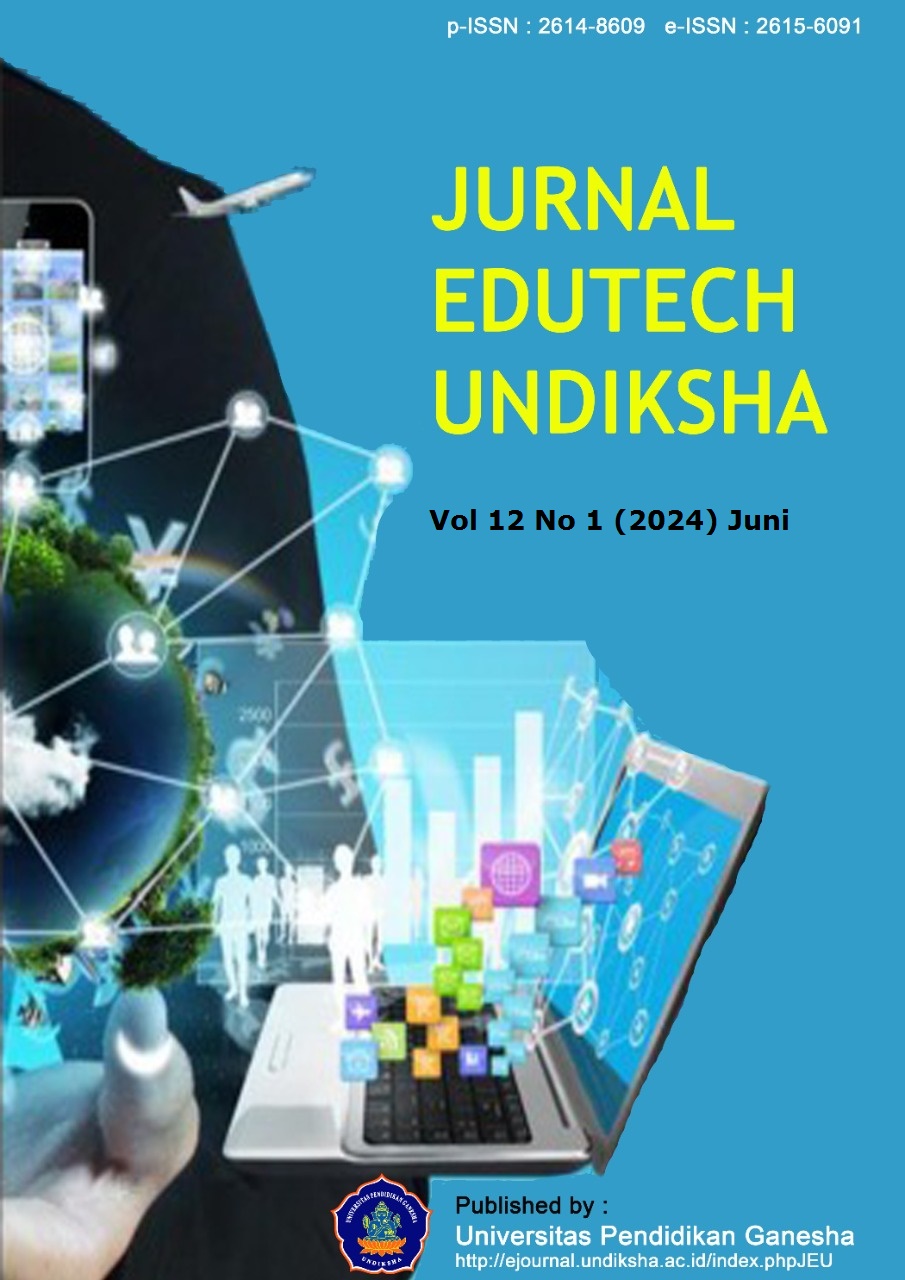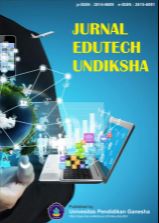Problem-Based Audio-Visual Animation Media for Indonesian Language Learning in Elementary Schools
DOI:
https://doi.org/10.23887/jeu.v12i1.69114Keywords:
learning media, audio visual animation, ADDIE modelAbstract
Learning media that utilizes digital technology has not been fully utilized optimally so that students feel bored and less enthusiastic about using learning media that only relies on books, especially when learning Indonesian. Based on these problems, it is necessary to develop animated learning media that can accommodate students to be more active and enthusiastic in learning. This research aims to develop a learning media in the form of problem-based audio-visual animations on the sub-theme of togetherness in elementary school Indonesian language content houses. The development of problem-based audio-visual animation refers to the procedures contained in the ADDIE model, namely: analysis, design, development, implementation and evaluation. However, the stages carried out in this research only reached the development stage. The subjects in this research were audio-visual animations which were assessed by 2 material experts, 2 media experts, 2 design experts, 1 teacher and 12 students. The object of this research is the validity of audio-visual animation. The data collection process was carried out using a questionnaire method using a Likert scale. Data analysis was carried out using a percentage formula. The percentage results obtained from material expert, media expert, design expert, teacher and student responses were respectively 95.83%, 93.74%, 88.54%, 92.21% and 93.74% with very good qualifications. Thus, it can be concluded that this problem-based audio-visual animation is feasible and valid for use in the learning process. Problem-based audio-visual animation learning media can motivate and encourage teachers to hone their abilities and skills in utilizing technology in the field of education. Apart from that, it helps make it easier for students to learn the material.
Published
How to Cite
Issue
Section
License
Copyright (c) 2023 Faris Deniarrais Suhanda, Gusti Ayu Putu Sukma Trisna, Dewa Gede Firstia Wirabrata

This work is licensed under a Creative Commons Attribution-ShareAlike 4.0 International License.
Authors who publish with the Jurnal EDUTECH Undiksha agree to the following terms:
- Authors retain copyright and grant the journal the right of first publication with the work simultaneously licensed under a Creative Commons Attribution License (CC BY-SA 4.0) that allows others to share the work with an acknowledgment of the work's authorship and initial publication in this journal.
- Authors are able to enter into separate, additional contractual arrangements for the non-exclusive distribution of the journal's published version of the work (e.g., post it to an institutional repository or publish it in a book), with an acknowledgment of its initial publication in this journal.
- Authors are permitted and encouraged to post their work online (e.g., in institutional repositories or on their website) prior to and during the submission process, as it can lead to productive exchanges, as well as earlier and greater citation of published work. (See The Effect of Open Access)














